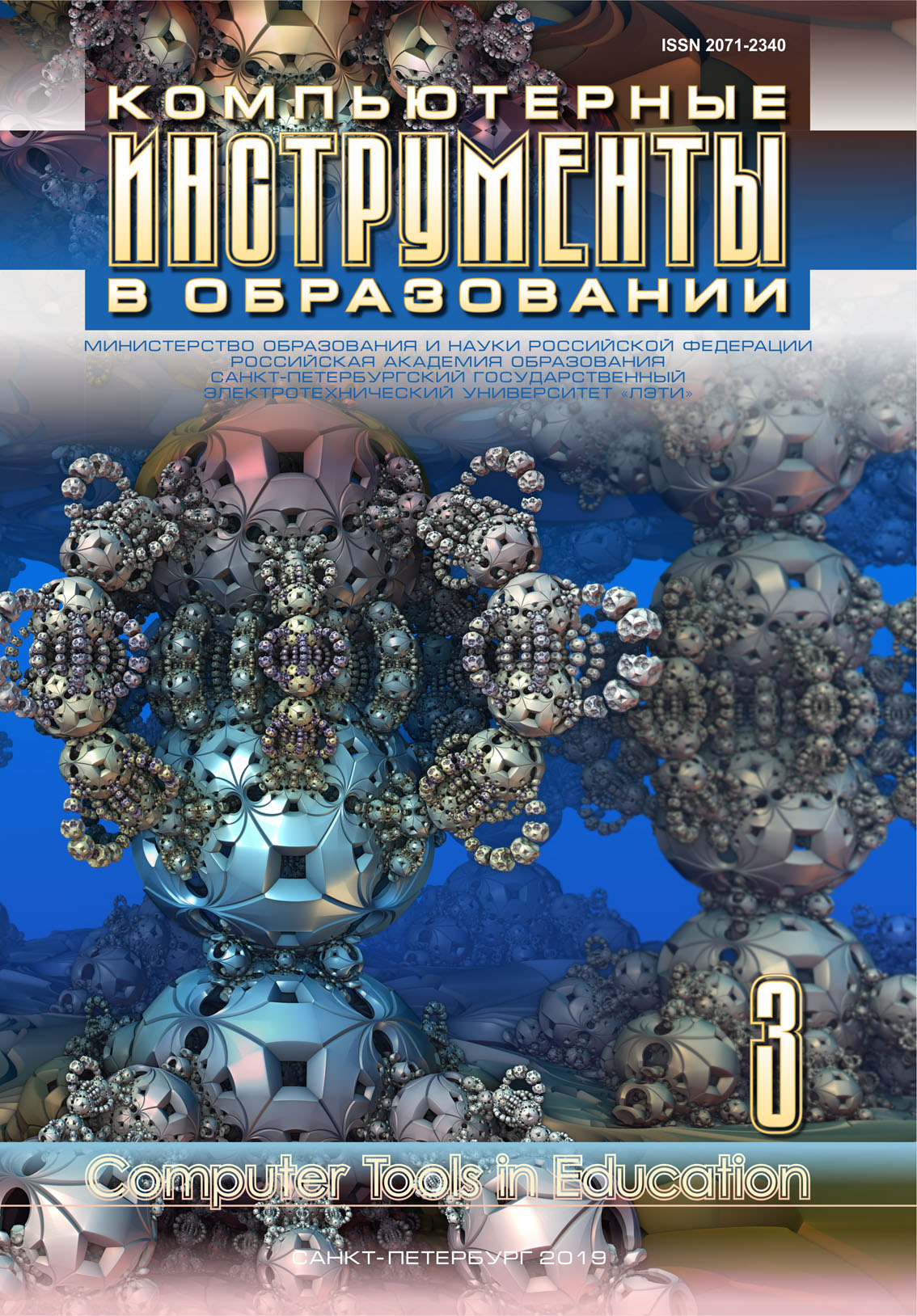Determining the Composition of Collections for Key-Document Databases Based on a Given Set of Object Properties and Database Querie
Abstract
The work of transforming a database from one format periodically appears in different organizations for various reasons. Today, the mechanism for changing the format of relational databases is well developed. However, with the advent of new types of databases, such as NoSQL, this problem is prevalent due to the radically different ways of data organization at the various databases. This article discusses a formalized method based on set theory, at the choice of the number and composition of collections for a key-value type database. The initial data are the properties of objects, about which information is stored in the database, and the set of queries that are most frequently executed. The considered method can be applied not only when creating a new keyvalue database, but also when transforming an existing one, when moving from relational databases to NoSQL, when consolidating databases.
References
W. Li and C. Clifton, “Semantic Integration in Heterogeneous Databases Using Neural Networks,” in Proc. 20th Int. Conf. Very Large Data Bases, 1994, pp. 1–12.
A. Doan, P. Domingos, and A. Levy, “Learning source description for data integration,” in Proc. Int’l Workshop on The Web and Databases (WebDB-2000), 2000, pp. 81–86.
R. J. Miller, L. M. Haas, and M. Hernandez, “Schema Mapping as Query Discovery,” in Proc. 26th Int. Conf. Very Large Data Bases, Cairo, Egypt, 2000, pp. 77–88.
T. Milo and S. Zohar, “Using schema matching to simplify heterogeneous data translation,” in VLDB, 1998, pp. 1–21.
L. Palopoli, D. Sacca, and D. Ursino, “An automatic technique for detecting type conflits in database shemes,” in Proc. of the 7th int. conf. on Information and knowledge management, Bethesda, MD, USA, 1998, pp. 306–313; doi: 10.1145/288627.288671
S. Castano and V. De Antonellis, “A schema analysis and reconciliation tool environment for heterogeneous databases,” in Proc. IDEAS’99. Int. Database Eng. Appl. Symp. (Cat. No.PR00265), 1999; doi: 10.1109/IDEAS.1999.787251
S. Bergamaschi, S. Castano, M. Vincini, and D. Beneventano, “Semantic integration of heterogeneous information sources,” Data Knowl. Eng., vol. 36, no. 3, pp. 215–249, 2001; doi: 10.1016/S0169-023X(00)00047-1
S. Chickerur, “Comparison of Relational Database with Document-Oriented Database (MongoDB) for Big Data Applications,” in Int. Conf. on Advanced Software Engineering & Its Applications (ASEA), Jeju, South Korea, 2015, pp. 41–47; doi: 10.1109/ASEA.2015.19
M. Hanine, A. Bendarag, and O. Boutkhoum, “Data Migration Methodology from Relational to NoSQLDatabases,” International Journal of Computer, Electrical, Automation, Control and Information Engineering, vol. 9, no. 12, pp. 2566–2570, 2015.
G. Karnitis and G. Arnicans, “Migration of Relational Database to Document-Oriented Database: Structure Denormalization and Data Transformation,” in 7th International Conference on Computational Intelligence, Communication Systems and Networks (CICSyN), Riga, Latvia, 2015, pp. 113–118; doi: 10.1109/CICSyN.2015.30
X. Li, Z. Ma, and H. Chen, “QODM: A Query-Oriented Data Modeling Approach for NoSQL Databases,” in IEEE Workshop on Advanced Research and Technology in Industry Applications (WARTIA), Ottawa, ON, Canada, 2014, pp. 338–345; doi: 10.1109/WARTIA.2014.6976265
L. Rocha, F. Vale, and E. Cirilo, “A Framework for Migrating Relational Datasets to NoSQL,” Procedia Computer Science, vol. 51, pp. 2593–2602, 2015; doi: 10.1016/j.procs.2015.05.367
D. Liang, Y. Lin, and G. Ding, “Mid-model Design Used in Model Transition and Data Migration between Relational Databases and NoSQL Databases,” in IEEE Int. Conf. on Smart City/SocialCom/SustainCom (SmartCity), Chengdu, China, 2015, pp. 866–869; doi: 10.1109/SmartCity.2015.177
S. Hamid, M. Rezapour, M. Moradi, and N. Ghadiri, “Performance evaluation of SQL and MongoDB databases for big ecommerce data,” in 2015 Int. Symp. on Computer Science and Software Engineering (CSSE), Tabriz, Iran, August 2015; doi: 10.1109/CSICSSE.2015.7369245
R. T. Mason, “NoSQL Databases and Data Modeling Techniques for a Document-oriented NoSQL Database,” in Proc. Inf. Sci. IT Educ. Conf. (InSITE), 2015, pp. 259–268. ИНЖЕНЕРИЯ ПРОГРАММНОГО ОБЕСПЕЧЕНИЯ 27 Ха В. М., Шичкина Ю. А., Костичев С. В.
Y. Gu, S Shen, J. Wang, and J.-U. Kim, “Application of NoSQL Database MongoDB,” in IEEE International Conference on Consumer Electronics, Taipei, Taiwan, 2015, pp. 158–159; doi: 10.1109/ICCETW.2015.7216831

This work is licensed under a Creative Commons Attribution 4.0 International License.







